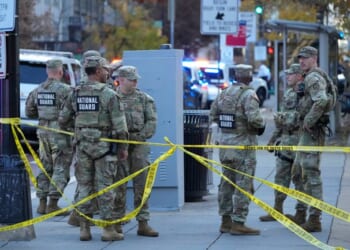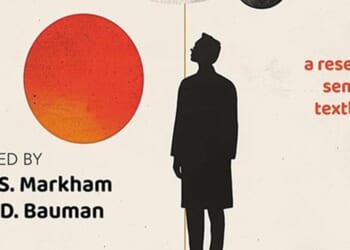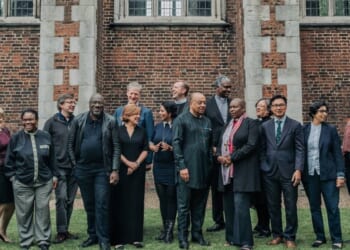Steve Hayward identified the source of my approximation of my Buckley quote yesterday in “A fool’s house.” Steve kindly advised that the quote appears in Buckley’s essay “Notes Toward an Empirical Definition of Conservatism,” published first in Frank Meyer’s 1965 collection What Is Conservatism?. Buckley subsequently collected that essay in The Jeweler’s Eye and then drew on it for the introduction to two editions of Did You Ever See a Dream Walking? American Conservative Thought in the Twentieth Century (now available in paperback as American Conservative Thought In the Twentieth Century with a new introduction by Roger Pilon. This is the quote:
Blindfold me, spin me about like a top, and I will walk up to the single Liberal in the room without zig or zag, and find him even if he is hiding behind the flower pot.
It’s not bragging if you can do it and we have no doubt he could do it. Steve comments: “Long one of my favorites since I first read it in high school.”
One of John’s and my old friend who must remain anonymous wrote to comment on his recent experience of another misplaced land acknowledgment at Herb Alpert’s October 3 concert in St. Paul at The O’Shaughnessy at St. Catherine University. It wasn’t Herb’s fault. Our friend writes:
I saw your comment about the land acknowledgement at the Guthrie and empathize greatly. I had a similar experience at the Herb Alpert concert at O’Shaughnessy Auditorium [October 3]. It was sponsored by the Dakota, but held onsite at St. Catherine’s to accommodate the bigger crowd (and it was sold out). A terrific show, best of the year for me. But wrong footed at the outset by a long “land acknowledgment” to the Sioux people from the chirpy director of the facility, who sounded like a college student, and definitely sophomoric. The announcement was followed by a mild round of applause from the audience.
It caught me by surprise and perhaps triggered some old instincts. I responded with some moderate booing. This precipitated reactions from the clusters of liberals around me. Aggressive clapping in my face, evil grins and turn around glares throughout the show.
The land acknowledgment strikes me as a control move by the liberals. Subverting a neutral space with their politics, using authority to enforce silence and manufacture consent. It is my belief that plenty of people at the concert felt like I did. But the social mores and power differential prevents any reaction. My instincts led me to react in such a situation — showing others it’s OK to dissent and imposing a cost (of discomfort) on those subverting this neutral space. Seems like the only reasonable reaction.
Alas, my dreams of starting a movement didn’t get very far. Didn’t receive any positive affirmations from presumed fellow free thinkers present. Lots of static from the liberals protecting their turf. And me making the rest of my party (who did not come to a Herb Alpert show for a fight) uncomfortable.
I know you not reacting at the Guthrie was unsatisfying. But me reacting at O’Shaughnessy was also unsatisfying, although a different flavor. I think dissatisfaction is the inevitable end result of any prolonged exposure to liberals.
For the record, I still believe lots in that crowd agreed with me. And liberals in power deserve to pay a price for subverting neutral spaces with their controversial ideologies.
But is the hassle worth it, just to see a concert or play? Short answer, no. For the time being, sadly, I will consider the Guthrie and O’Shaughnessy “no go” zones.
I acknowledge the wisdom of our friend’s conclusion.















